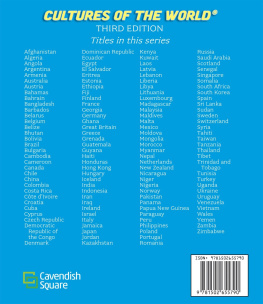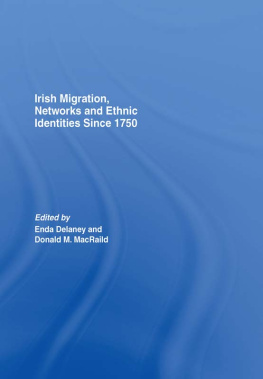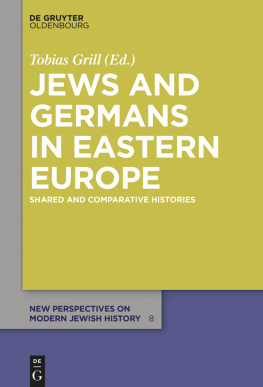Staying at Home
Integration and Conflict Studies
Published in association with the Max Planck Institute for Social Anthropology, Halle/Saale
Series Editor: Gnther Schlee, Director of the Department of Integration and Conflict at the Max Planck Institute for Social Anthropology
Editorial Board: Brian Donahoe (Max Planck Institute for Social Anthropology), John Eidson (Max Planck Institute for Social Anthropology), Peter Finke (University of Zurich), Joachim Grlich (Max Planck Institute for Social Anthropology), Jacqueline Knrr (Max Planck Institute for Social Anthropology), Bettina Mann (Max Planck Institute for Social Anthropology), Stephen Reyna (Max Planck Institute for Social Anthropology)
Assisted by: Cornelia Schnepel and Viktoria Zeng (Max Planck Institute for Social Anthropology)
The objective of the Max Planck Institute for Social Anthropology is to advance anthropological fieldwork and enhance theory building. Integration and conflict, the central themes of this series, are major concerns of the contemporary social sciences and of significant interest to the general public. They have also been among the main research areas of the institute since its foundation. Bringing together international experts, Integration and Conflict Studies includes both monographs and edited volumes, and offers a forum for studies that contribute to a better understanding of processes of identification and inter-group relations.
Volume 1
How Enemies are Made: Towards a Theory of Ethnic and Religious Conflict
Gnther Schlee
Volume 2
Changing Identifications and Alliances in North-East Africa
Vol.I: Ethiopia and Kenya
Edited by Gnther Schlee and Elizabeth E. Watson
Volume 3
Changing Identifications and Alliances in North-East Africa
Vol.II: Sudan, Uganda and the Ethiopia-Sudan Borderlands
Edited by Gnther Schlee and Elizabeth E. Watson
Volume 4
Playing Different Games: The Paradox of Anywaa and Nuer Identification Strategies in the Gambella Region, Ethiopia
Dereje Feyissa
Volume 5
Who Owns the Stock? Collective and Multiple Forms of Property in Animals
Edited by Anatoly M. Khazanov and Gnther Schlee
Volume 6
Irish/ness Is All Around Us: Language Revivalism and the Culture of Ethnic Identity in Northern Ireland
Olaf Zenker
Volume 7
Variations on Uzbek Identity: Strategic Choices, Cognitive Schemas and Political Constraints in Identification Processes
Peter Finke
Volume 8
Domesticating Youth: Youth Bulges and their Socio-Political Implications in Tajikistan
Sophie Roche
Volume 9
Creole Identity in Postcolonial Indonesia
Jacqueline Knrr
Volume 10
Friendship, Descent and Alliance in Africa: Anthropological Perspectives
Edited by Martine Guichard, Tilo Grtz and Youssouf Diallo
Volume 11
Masks and Staffs: Identity Politics in the Cameroon Grassfields
Michaela Pelican
Volume 12
The Upper Guinea Coast in Global Perspective
Edited by Jacqueline Knrr and Christoph Kohl
Volume 13
Staying at Home: Identities, Memories and Social Networks of Kazakhstani Germans
Rita Sanders
Staying at Home
Identities, Memories and Social Networks of Kazakhstani Germans
Rita Sanders
Published by
Berghahn Books
www.berghahnbooks.com
2016 Rita Sanders
All rights reserved. Except for the quotation of short passages for the purposes of criticism and review, no part of this book may be reproduced in any form or by any means, electronic or mechanical, including photocopying, recording, or any information storage and retrieval system now known or to be invented, without written permission of the publisher.
Library of Congress Cataloging-in-Publication Data
Names: Sanders, Rita, author.
Title: Staying at home : identities, memories and social networks of Kazakhstani Germans / Rita Sanders.
Description: First edition. | New York : Berghahn Books, [2016] | Series: Integration and conflict studies ; volume 13 | Includes bibliographical references and index.
Identifiers: LCCN 2016024964| ISBN 9781785331923 (hardback) | ISBN 9781785331930 (ebook)
Subjects: LCSH: GermansKazakhstanEthnic identity. | GermansKazakhstanSocial conditions. | Collective MemoryKazakhstan. | TransnationalismSocial aspectsKazakhstan. | Social networksKazakhstan. | Social networksGermany. | KazakhstanEthnic relations. | KazakhstanEmigration and immigration. | KazakhstanRelationsGermany. | GermanyRelationsKazakhstan.
Classification: LCC DK907.15.G47 S36 2016 | DDC 305.83/10584dc23
LC record available at http://lccn.loc.gov/2016024964
British Library Cataloguing in Publication Data
A catalogue record for this book is available from the British Library
ISBN 978-1-78533-192-3 (hardback)
ISBN 978-1-78533-193-0 (ebook)
for Agnes and Josef Sanders
Table of Contents
List of Maps, Figures and Tables
Maps
Figures
Tables
Acknowledgements
I would like to thank the many people who have helped to make this research project possible. First of all, I feel very grateful for the openness and cooperation of people in Kazakhstan who took care of my well-being and who were willing to share their ideas and life stories with me. I feel particularly indebted to the Head of the German minority centre in Taldykorgan, Vladimir Molodtsov, and to Eleonora Frisen, Irina Voronina, and Ludmilla Iterman. Their enthusiasm for my work, their warmth and hospitality, and their enormous practical and intellectual support made my research in Taldykorgan a pleasure. Furthermore, I want to thank Vladimir Kraisman and his family, Anna Fabritsius, Erina, Galina Antonovna, Bilimtay Tumenbaev, Roza Shtoppel, Natalya Shenknecht, Shinara Abdulina, Olevtin, Bibitgul, Anna Klaus, and many more people not mentioned by name for their support, hospitality, and ideas. Similarly, I want to thank Irina Erofeeva, Elvira Pak from the Friedrich-Ebert-Stiftung, and Cornelia Riedel from the Deutsche Allgemeine Zeitung for sharing their insights with me and for providing me with information.
In Germany, I would like to thank my first supervisor Gnther Schlee, director of the Max Planck Institute for Social Anthropology in Halle, for his commitment and his intellectual contributions. I also feel indebted to Peter Finke, head of the Department of Social and Cultural Anthropology at the University of Zrich, who inspired my interest in Kazakhstan years ago. This research benefited substantially from his encouragement, his sharp comments and his expertise in the field. Furthermore, I would like to thank Wolfgang Holzwarth from the Oriental Studies Centre, Martin Luther University Halle-Wittenberg and Irene Hilgers, recently deceased, Svetlana Jacquesson, Philipp Schrder, Aksana Ismailbekova, Sophie Roche, Mateusz Laszczkowski, Joachim Grlich, John Eidson, Mathijs Pelkmans, Florian Mhlfried and many more colleagues at the Max Planck Institute for Social Anthropology for their contributions and critical insights, and also for their encouragement and companionship.










